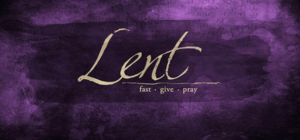“If I do this.”
If I drive an electric car, I will be making a difference to the polar bears.
If I live a good life, I will have good karma.
If I drive defensively, I will not get run over.
If I go to church once and while I will be accepted.
There was an invalid who every day would be found by a special place. It had five great colonnades or walkways with alcoves on both sides. They surrounded a great pool of water. He had come there every day for thirty-eight years. The common understanding was when the pool was disturbed by a visiting angel, the waters would start to bubble. “If I am the first in the pool, I will be saved.
Year after year trying to be as close as possible so when the bubbles began he would roll into the healing water. Like himself, hundreds of sick, lame, blind, disadvantaged all depended upon the bubbles. They put their trust in the bubbles. They had faith in the bubbles. The bubbles made all the difference. The water no matter how cooling or inviting was not good enough; it had to have bubbles to be effective.
Every day was spent staring intently at the surface of the pool. It was a danger just to blink and miss the first bubble as it disturbed the surface. In our lives, we too wait anxiously for the next bubble in lives. That next stirring will make the difference.
The malady of the day is the dependence upon the bubbles and not on the source of healing. There have been great revivals, great outpourings of God’s Spirit on men. These great stirrings have made a great difference. The great Reformation drew millions to a new faith-based belief. The concept of evangelism crusades as espoused by Rev. Billy Graham gave place to millions of lives changed. But these great stirrings were not little bubbles upon the pool. They were great upheavals. They were not choices of what is contemporary one moment and outdated the next.
Faith in bubbles is the problem. If sing the right song in an easy key and repeat the verse repeatedly, I will be moved. If we make the church more relevant, you will hear, “Here it is. Here is the agitation that will turn people to God. A well-orchestrated worship experience will save the church.” “The bubble will be our cure.”
We tend to be polarized in our experiences. When things are going well we have great things to praise God for. When things are going poorly we have things to pray to God for. They are both just disturbances in our lives. And like the poor man at the pool, we are not saved by it.
It is all showman’s tricks. It is all smoke and mirrors. It is all bubbles. It is trading a true faith in God to a faith in bubbles. The man at the pool was saved not by the bubbling disturbance of the waters beneath the colonnade. It was no external disturbance that would heal the wretched man. What healed that invalid by the pool was a person. It is the advent of Jesus into the middle of our lives that provides the healing of spirit and of mind. By faith, we are saved. Faith in the commander who said, “Pick up your mat and walk.”
The Kingdom of heaven does not come with the observation of the bubbles.
What do you think?



 The only being that is completely self-sufficient is God, all others must and are driven to consume. If you don’t, you die. Whether it is good for you vegetables, or not so good for you half-pound hamburger covered with cheese and accompanied by greasy fried potatoes, you will consume. Again, this is a motive or a decision point that you must come to order for you to live. The desire to incorporate something outside of yourself is neither right or wrong, it is part of being God’s creation. We come into the realm of good and bad is when we start making the decision as to how to satiate that desire.
The only being that is completely self-sufficient is God, all others must and are driven to consume. If you don’t, you die. Whether it is good for you vegetables, or not so good for you half-pound hamburger covered with cheese and accompanied by greasy fried potatoes, you will consume. Again, this is a motive or a decision point that you must come to order for you to live. The desire to incorporate something outside of yourself is neither right or wrong, it is part of being God’s creation. We come into the realm of good and bad is when we start making the decision as to how to satiate that desire.